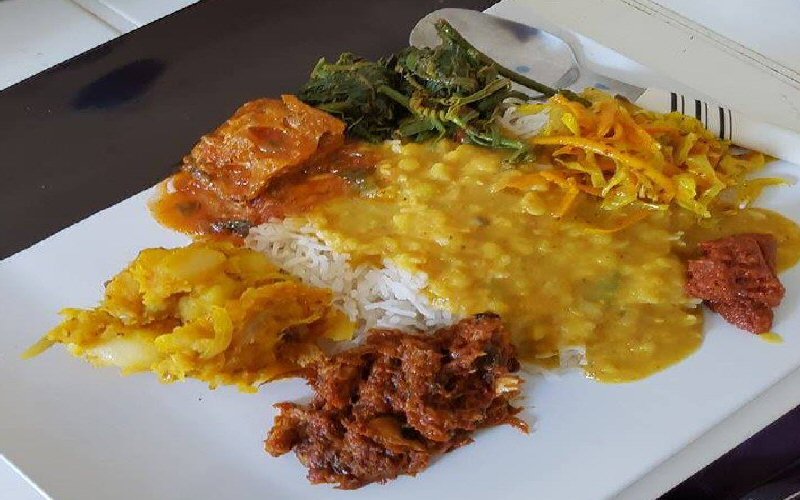It is customary for almost everyone to eat sweets last. This arrangement came from a cultural icon named Ziryab who lived in Cordoba from Iraq in the 9th Century. He introduced Islamic Spain to dining etiquette & decor. Ziryab revolutionised everything from fashion, to dining, to music, to hairstyles and to hygiene. At the time, no one cared much for foods to be served in courses. Foods were just piled onto the service platters and everyone had a go without any specific order. Ziryab dictated that there should be an order to how food is eaten. Soup was served first as an appetiser. This was followed by the main course, which would include meats, fish and other heavier foods. Finally, the meal was finished off by fruits and other sweets, with nuts being served afterwards as a snack. This revolutionised how chefs prepared foods and how people ate. The French adopted this practice that spread to other cultures, except for the Tamil culture.
The Ayurveda that has historical roots in the Indian subcontinent is practiced in India and Nepal, where 80% of the population report using ayurveda teachings. Ayurveda recommends the order in which the 6 principal tastes should be consumed in a meal:
1. Sweet
2. Sour
3. Salty
4. Pungent
5. Bitter and
6. Astringent
Ones should eat food items with these predominant tastes in that order.
This has to do with the order in which foods are digested in the body. Digestion is a 3-stage process (kapha stage, pitta stage and vata stage) and the tastes above provoke the production of digestive juices needed for the 3 stages of digestion and get digested in that order. Basically, eating sweet at the beginning keeps the digestive process smooth. Another thing is that eating a sweet when one is full can cause a false sense that one needs more food and one may end up overeating. On the other hand, eating something bitter or astringent at the end stops the salivation and makes one not overeat.
It is a shame that correct knowledge is available from ancient sciences such as Ayurveda but is ignored. I came across this information when doing research on Tamil cuisine. Two Tamil cookbook authors from Mauritius and Chennai, India told me about eating sweets first was the proper thing to do. Mind you, you eat only a small portion of sweets so as to leave space for other foods.



I have been told that Muslims during Ramadan, eat a couple of dates after fasting before eating other foods.
Ramadan is a very popular time to eat dates because the Prophet (ﷺ) said, “When one of you breaks his fast, let him break it with dates for they are blessed. If they are not found, let him break it with water for it is pure.” [Tirmidhī]
It is customary in many countries for Muslims to break their fast at the time of Iftar by consuming dates. It must be made clear, however, that opening fast with dates is not mandatory, but is something that is preferred.
https://www.baytalfann.com/post/dates-a-ramadan-tradition….